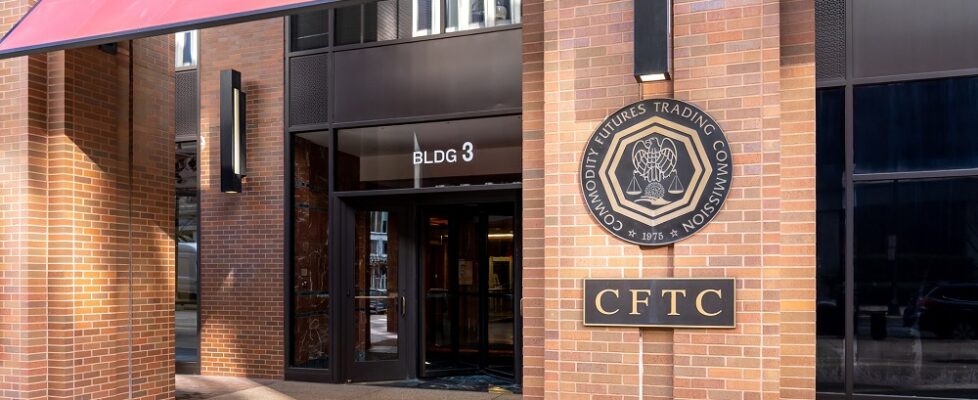CFTC secures Court order imposing $169M fine on ROFX and associated entities
The Commodity Futures Trading Commission (CFTC) has secured a Court order imposing heavy penalties on a number of business entities and individuals linked to fraudulent Forex scheme ROFX.
On April 22, 2024 Judge Darrin P. Gayles of the Florida Southern District Court signed an order of final judgment against the following nine defendants: Facilitating Defendants (1) Jase Davis (“Davis”), (2) Borys Konovalenko (“Konovalenko”), (3) Anna Shymko (“Shymko”), (4) Alla Skala (“Skala”), and Corporate Defendants (5) Easy Com LLC d/b/a ROFX (“Easy Com”), (6) Global E- Advantages LLC a/k/a Kickmagic LLC d/b/a ROFX (“GEA”), (7) Grovee LLC d/b/a ROFX (“Grovee”), (8) Notus LLC d/b/a ROFX (“Notus”), and (9) Shopostar LLC d/b/a ROFX (“Shopostar”).
The above-mentioned defendants must pay jointly and severally, a civil monetary penalty in the amount of $169,086,837.63. If the CMP Obligation is not paid immediately, then post judgment interest will accrue on the CMP Obligation beginning on April 22, 2024.
Further, the defendants must pay, jointly and severally, restitution in the amount of $56,362,279.21 (“Restitution Obligation”), representing the net losses suffered by customers as a result of Defaulting Defendants’ fraudulent conduct.
The Court also imposed a permanent injunction against Defaulting Defendants that prohibits them from registering with the CFTC and participating in the markets regulated by the CFTC.
According to the Amended Complaint, during the Relevant Period, Defaulting Defendants, acting as a common enterprise and through, and/or in conjunction with, the web-based entity www.ROFX.net, misappropriated at least $57.5 million as part of a fraudulent scheme in, and/or in connection with, the offering of leveraged, margined or financed agreements, contracts, or transactions in retail forex to U.S. and international customers who were not eligible contracts participants (ECPs).
Defaulting Defendants—operating through a maze of interrelated companies, shared managers, and members—accepted funds from ROFX customers that were intended to be used to margin, leverage or finance agreements, contracts, or transactions in forex as described on the ROFX website. They accepted customers’ funds while acting as a single, integrated common enterprise and misappropriated all of the funds they accepted from over 1,100 ROFX customers by immediately wiring the funds to offshore entities with no connection to forex trading.
Corporate Defendants were interrelated shell companies serving no legitimate business purpose other than to defraud ROFX customers. They operated together as ROFX through the ROFX website, shared the same officers and purported business addresses, accepted ROFX customer funds into their various bank accounts, and transferred ROFX customer funds to common offshore entities.
Facilitating Defendants controlled Corporate Defendants during the Relevant Period, were all corporate officers of Corporate Defendants, and used Corporate Defendants’ bank accounts to collect, transfer, and disburse ROFX customer funds.
Facilitating Defendants created one or more of the Corporate Defendants in the United States and/or submitted corporate documents on behalf of Corporate Defendants utilizing common officers, addresses, and registered agents.
Facilitating Defendants also opened U.S. bank accounts on behalf of one or more of the Corporate Defendants, controlled Corporate Defendants’ bank accounts including the deposits to and withdrawals from these accounts, and transferred ROFX customer funds between and amongst themselves and to the same offshore entities.
Defaulting Defendants obtained customers through the ROFX website, wherein ROFX claimed to create and trade retail forex accounts on behalf of customers utilizing a highly successful automated trading robot. ROFX touted that it was the “best automated forex trading robot in the world,” and the only trading system that “guarantee[d] coverage of losses.”
In addition to the ROFX website, some customers were introduced to ROFX via social media and referrals by friends and family who had invested with ROFX.
Davis, Konovalenko, Skala, and Stubbs accepted the customer funds into Corporate Defendants’ bank accounts and did not use the funds for trading, while failing to disclose certain material facts to customers, including but not limited to: (1) Defendants misappropriated all ROFX customer funds they accepted into Corporate Defendants’ bank accounts; (2) Defendants did not trade forex for customers after accepting ROFX customers’ funds; (3) Corporate Defendants were not legitimate business enterprises, and Defendants did not forward ROFX customers’ funds to any entity that traded funds on behalf of ROFX customers; (4) ROFX customers had no forex trading accounts; and (5) there was no ROFX forex trading robot.
Defaulting Defendants did not use any of the customer funds it accepted to margin, secure or guarantee forex transactions to enter into any forex contracts on behalf of customers as promised on the ROFX website. Instead, Defaulting Defendants misappropriated the funds by accepting customer funds into Corporate Defendants’ bank accounts and immediately transferring those same funds to various offshore entities as well as to Facilitating Defendants’ personal accounts.
Defendants’ corporate bank accounts appear to have existed for the sole purpose of collecting and moving ROFX customer funds because there does not appear to have been other legitimate business activity in these accounts. The offshore entities that ultimately received most of the ROFX customer funds are non-trading entities having nothing to do with forex trading.
During the Relevant Period, the five Corporate Defendants—Easy Com, GEA, Grovee, Notus, and Shopostar—acted in a capacity as futures commission merchants (FCMs) by doing business as ROFX, soliciting or accepting orders for retail forex transactions via the website, and accepting funds in or in connection with these activities to leverage, margin or guarantee contracts, agreements or transactions in forex. Corporate Defendants each acted as FCMs without being registered with the CFTC.




